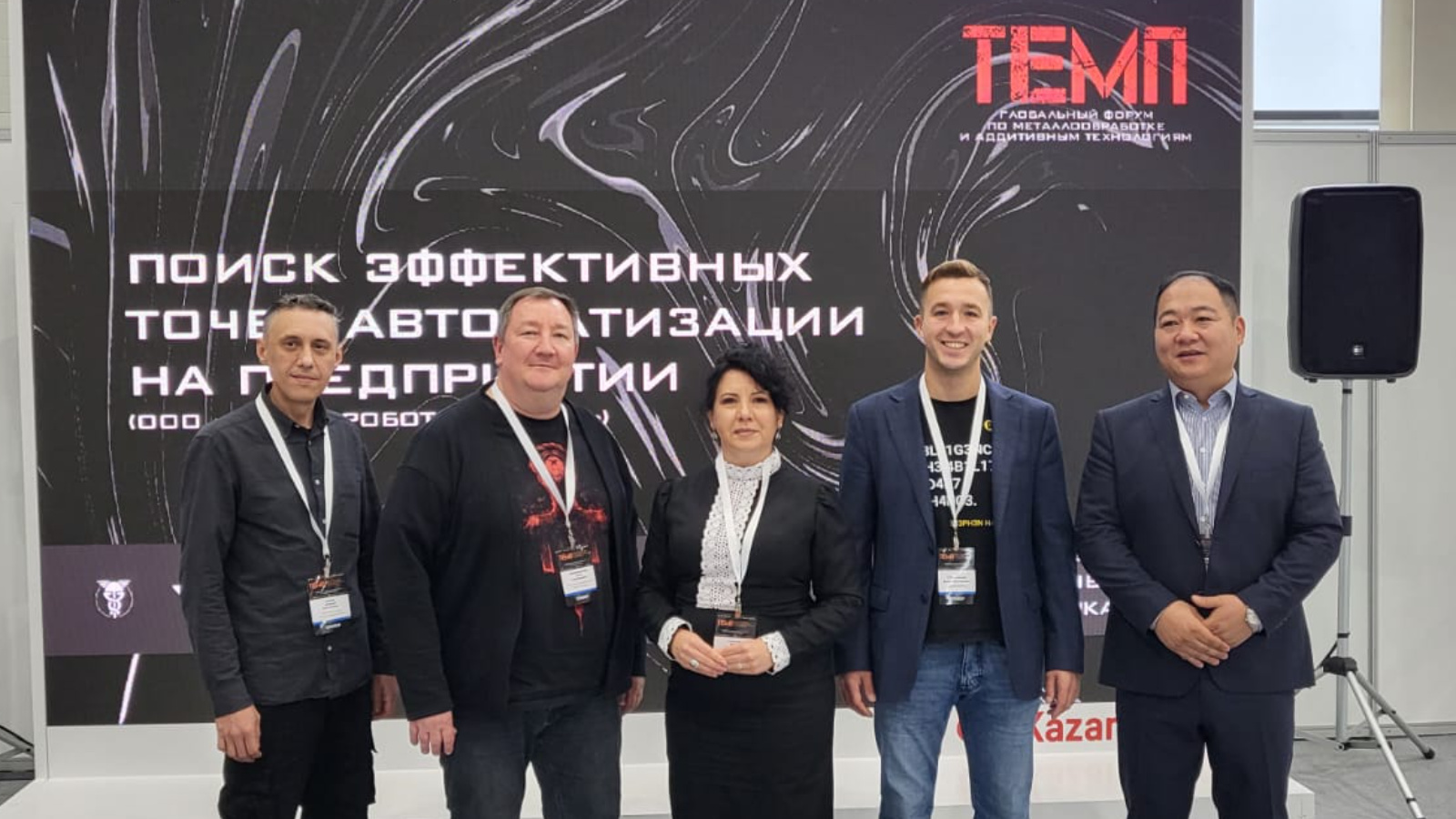Ural State University of Economics spoke at the forum in Tatarstan

These days, on October 1-3, the TEMP Global Forum on Metalworking and Additive Technologies is being held in Kazan (Republic of Tatarstan).
Taliya Minullina, Head of the Investment Development Agency of the Republic of Tatarstan: "The business program of the forum will consist of 16 sessions in various areas, but all of them are related to additive technologies. They allow you to create complex geometric shapes of internal structures, reduce the weight of structures while maintaining strength, combine several parts into one, minimize waste, and much more. We also have a small international involvement, but we are focused on establishing domestic contacts and import substitution."
The Ural region was represented by: the Institute of Additional Education of the Ural State University of Economics with the project "Formation of a personnel reserve for the industrial sector"; the Ural-Chinese Union of Entrepreneurship and Business; the Industrial Committee of the Union of SMEs.
Panel session on the topic: The "Search for effective automation points in the enterprise" took place today as part of the Global Forum on Metalworking and Additive Technologies "TEMP" in the Kazan Expo IEC.
The moderator was Elina Zakirova, Director of the Institute of Additional Education at the Ural State University of Economics.
The participants of the round table discussed possible options for creating joint projects. IDO USUE will act as an educational platform for unified professional standards for continuing professional education programs and the Robotics and Business Process Automation programs through work with Exell.
Session Speakers:
▶️ Ganiev Evgeny – automation of technological processes
▶️ Maxim Gurbashkov – the role of the Robotics Consortium in the development of the industry
▶️ Zakirova Elina – formation of personnel reserve in industry
▶️ Li Hailong – The Chinese approach to automation: Speed, pragmatism and precise implementation
▶️ Anton Suryaninov – search for effective automation points
Artur Shimanovsky – audit as a tool for detecting points of robotization
The moderator of the meeting, Elina Zakirova, presented the report "Formation of the personnel reserve: from industrial tourism to industrial management". During her speech, she told the audience about an integrated approach to the formation of a personnel reserve - from attracting young people through industrial tourism to training senior managers through retraining programs, industrial postgraduate studies and accelerated master's degree programs using distance learning technologies implemented as part of the activities of IDO at USUE.
Maxim Gurbashkov, member of the Board of the Robotics Consortium, CEO of Innodrive LLC, raised the issue of the importance of professional industry associations in the formation and development of the market. The speaker also presented the main directions of the Consortium's work and the results obtained so far.
"The key areas of activity of the Robotics Consortium are to promote the development of end—to-end cooperation within the market, the formation of proposals and legislative initiatives to stimulate demand and adapt support measures, the standardization of approaches and requirements, and the development of an educational track. The current state of the market is reflected in the Atlas of Robotics and industry media — the magazine and Telegram channel "World of Robotics"," said Maxim Gurbashkov.
Li Hailong, President of the Ural Union of Chinese Entrepreneurship and Business, said the following during his speech.
1. Thesis: Automation is a strategic philosophy, not just the installation of robots.
"In China, automation is seen not as an expensive technological project, but as a strategic philosophy of survival and leadership in the modern economy."
2. Thesis: Success lies in point—to-point implementation, not in the "big bang".
"Our approach is not a complete restructuring of the plant, but a thousand cuts. We find the "pain points" — the narrowest and most routine places in production — and automate them precisely. This gives a quick effect at a manageable cost."
3. Thesis: Data is the new oil, and they need to be put into action right away.
"Any automation should provide data for decision-making. For example, predictive maintenance sensors help prevent machine failure, saving thousands of dollars on downtime."
4. Thesis: The best ideas are born from the bottom up.
"We encourage automation ideas from the workers themselves. Whoever stands at the machine knows best which process takes the most time and effort."
5. Thesis: The most effective points for automation.
"Automation of logistics and warehouse, inventory management, CRM systems and quality control using machine vision gives the fastest result. This is the "circulatory system" of a business, and optimizing it frees up huge amounts of money."
6. Thesis: Automation is about redistributing, not firing people.
"Chinese wisdom says, 'Not man for automation, but automation for man.' We free people from routine to engage in creative tasks, negotiations, and strategy—things that a machine can't do."
7. Thesis: Investing in learning is the key to success.
"By implementing the new system, we immediately invest in employee training. An employee who understands and knows how to work with a new tool is 10 times more valuable than someone who is afraid of it."
8. Thesis: The search for automation points is the mission of the first person.
"Finding automation points is not a task for the IT department, but the mission of the first person and the constant practice of each manager. Look at your business like a doctor — look for "pain points". Be pragmatic: start small, but do it today."
Following the results of the session, the following decisions were made:
1. Launch of a joint project of the Ural State University of Economics with the consortium of robots on personnel training in the field of robotics and automation of business processes.
2. On October 7, UGEU will discuss the roadmap for launching modern projects with Maxim Gurbashkov, CEO of Inodrive.